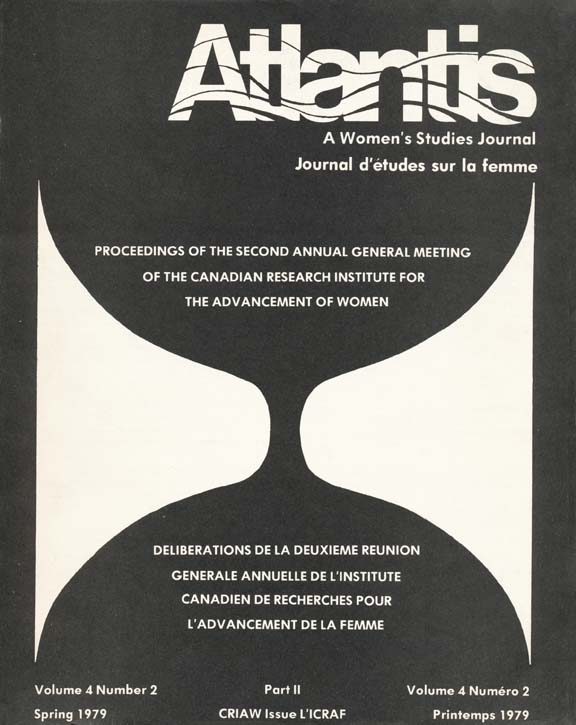The Experience of Rape Crisis Centres
Abstract
Les centres d'aide aux victimes de viol sont reconnus comme dee servicee sociaux à orientation féminine qui servent de véhicules de changement social. lls sont la réponse concrète aux besoine articulée par dee femmee informées ou conecientisées. Ces centres ont réuesi simultanement à aider les victimes et à permettre aux employées de connaître une croissance personnelle. Il en résulte une orientation grandissante vers l'action politique, orientation que les agences de subvention regardent d'un mauvais oeil. Dans le but de minimiser l'influence de cette orientation, ces agences ont limité leurs mandats au secteur des services de ces centres et elles utilisent des contrôles monétaires afin de reêtreindre l'action politique non partisane qui vise la restructuration complète de la société pour mettre fin à la violence dirigée contre les femmes. Afin de contrecarrer les mesures des agences de subvention et de poursuivre l'expérienoe de la croissance personnelle/ politique, nous suggérons la création d'un front commun de groupes féminins pour l'action politique, tel le lobbying. La mise sur pied d'un éventail de services pour les femmes a créé non seulement la diversité mais aussi la discorde. Il est temps de reprendre conscience de nos intérêts communs et de se rappeler que I'union fait la force.Downloads
Published
Issue
Section
License
Authors who publish with this journal agree to the following terms:
1. Authors retain copyright and grant the journal right of first publication, with the work simultaneously licensed under a Creative Commons Attribution 4.0 International License that allows others to share the work with an acknowledgement of the work's authorship and initial publication in this journal.
2. Authors are aware that articles published in Atlantis are indexed and made available through various scholarly and professional search tools, including but not limited to Erudit.
3. Authors are able to enter into separate, additional contractual arrangements for the non-exclusive distribution of the journal's published version of the work (e.g., post it to an institutional repository or publish it in a book), with an acknowledgement of its initial publication in this journal.
4. Authors are permitted and encouraged to preprint their work, that is, post their work online (e.g., in institutional repositories or on their website) prior to and during the submission process. This can lead to productive exchanges, as well as earlier and greater citation of published work. Read more on preprints here.







